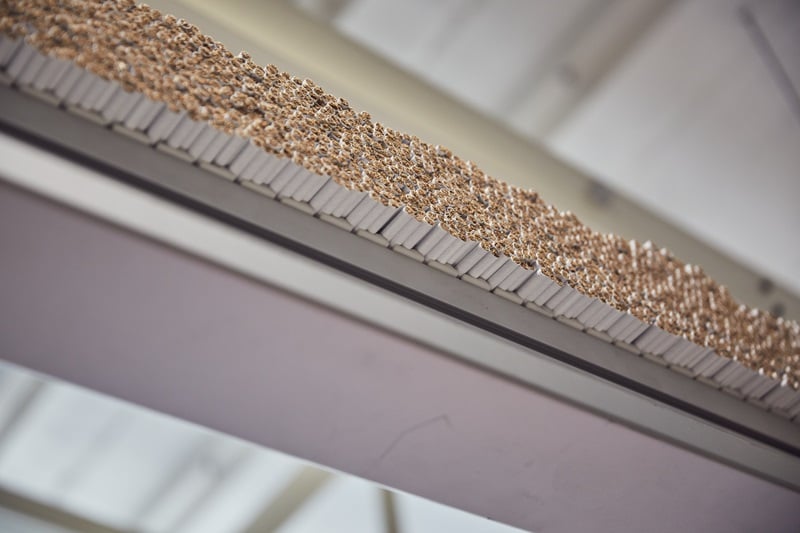
Tackling the source of illicit tobacco in Australia
19 Jan 2020

Despite the collaborative efforts of the Illicit Tobacco Task Force led by the Australian Border Force and including the Australian Criminal Intelligence Commission, Australian Taxation Office and the Commonwealth Director of Public Prosecutions, the issue of illicit tobacco persist.
In April 2019, illegal tobacco worth more than AUD 18.5 million was seized and destroyed in the states of Victoria and New South Wales alone. The Australian Border Force say the amount of raids, arrests and seizures related to the tobacco black market have risen considerably, with over 300 tons of smuggled tobacco confiscated in 2018, triple the 2017 figure.
While overall tobacco consumption is in decline, illicit tobacco consumption continues to be an issue in Australia. According to the KPMG report “Illicit Tobacco in Australia,” commissioned by Philip Morris International (PMI) in 2018, illicit tobacco accounted for 14.1 percent of all consumption.
But why is this happening in one of the most tightly regulated tobacco markets in the world?
Regulation
In Australia, all tobacco product advertisements and promotion to the public are strictly controlled. It was the first country in the world to implement the plain packaging of tobacco products. Prices are high. With the exception of New Zealand and New Caledonia, Australian prices are over 90 percent higher than any other markets in the region. On average, each legally sold cigarette in Australia attracts a tax of 93 cents, with current figures stipulating a 20-pack of cigarettes in Australia cost an average of AUD 30.
This large price differential between Australia and other nearby markets has driven the economic incentive for those involved in illicit trade. As the associated costs of legally purchasing cigarettes continue to rise exponentially, for the consumer the choice of buying cheaper illicit counterparts has become increasingly tempting.
Rising costs
Duty-free allowances have been cut tenfold since 2012. And though the Australian economy has been doing very well in recent years, taxes on tobacco have been rising even more quickly. Personal disposable income (PDI) has continuously increased over the past 10 years—growing 2.9 percent between 2017 and 2018. Yet, as figures from Illicit Tobacco in Australia show, indexed tobacco prices have risen 258 percent more than PDI since 2008.
Therefore, the increases have resulted in a decline in relative affordability when compared to previous years.
According to Illicit Tobacco in Australia, Asian countries are the primary source of inflows of non-domestic manufactured products into Australia. The leading non-domestic source market is China, where a pack of 20 Marlboro cigarettes costs AUD 24.36 less than it does in Australia. This wide price differential creates an economic incentive for smugglers and other individuals to import and sell tobacco outside of Australian legislation, evading excise duty. The report stipulates that last year the total consumption of illicit tobacco accounted for 14.1 percent of all consumption; if this tobacco had been consumed legally, it would have represented an excise value of AUD 2.02 billion.
There is significant money to be made by organized crime networks that can establish entry points for the products to reach consumers, sold via the black market.
Wider scope of the issue
The illicit tobacco market deprives communities of taxes necessary to fund essential community services. Illicit tobacco trade is also particularly damaging for retailers obeying the law, whose businesses come under threat when undercut by those disobeying tobacco control legislation. Many of these criminals are part of larger organized crime networks whose involvement in the illicit tobacco market in Australia ranges between an estimated 57 percent and a high-end estimate of 100 percent.
When looking at the bigger picture, smoking habits alone cannot explain the existence nor size of Australia’s tobacco black market. It appears that strict regulations coupled with an increasingly expensive product continue to drive consumers to the cheaper, more accessible black-market alternatives available. In tackling illicit trade in tobacco, the industry has an important role in sharing expertise and intelligence, thereby contributing to law enforcement efforts to dismantle the organized criminal networks.
Earlier this year, STOP ILLEGAL reported on the increasingly acute issue of illicit trade in Australia.


